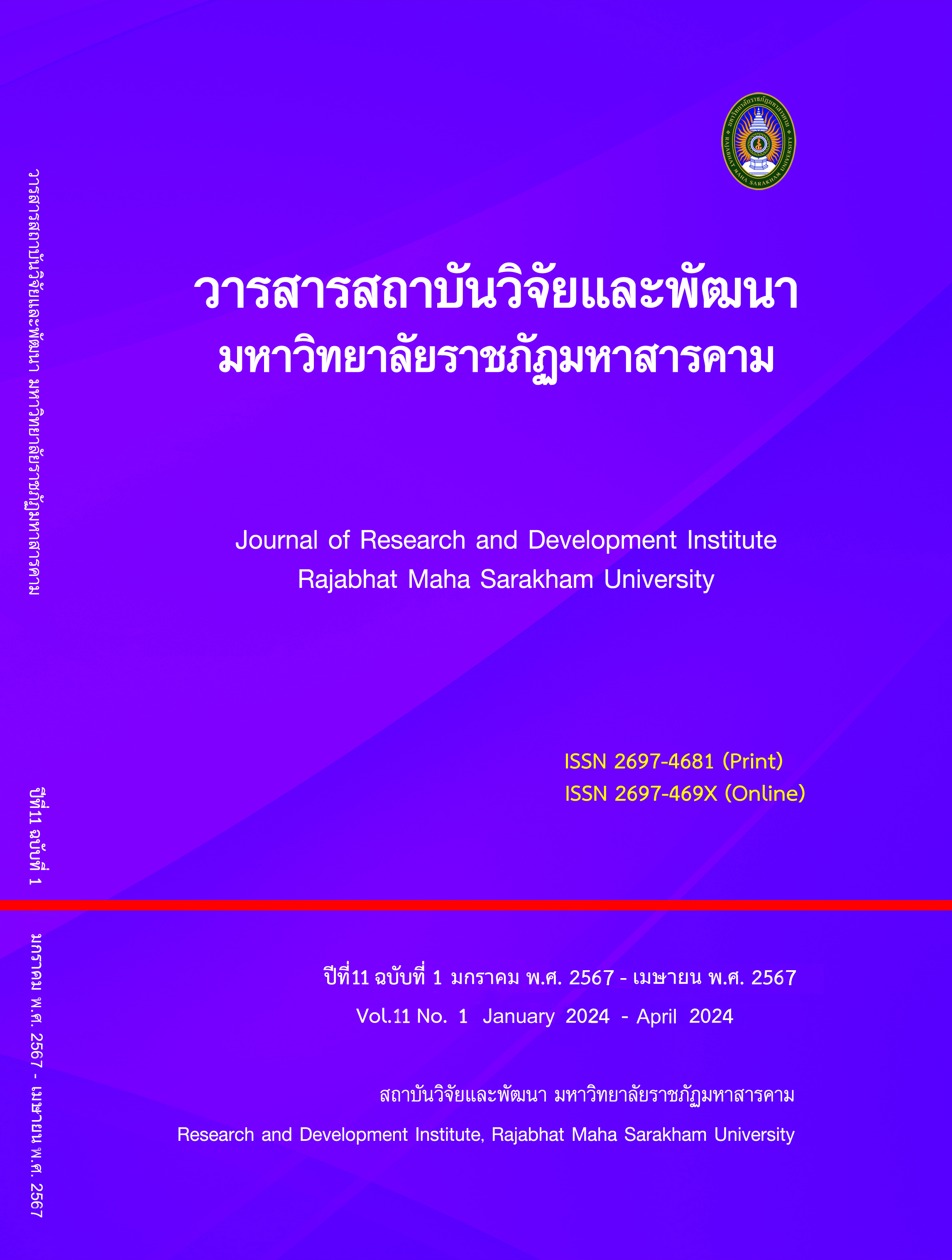A Model for the Development of a Collaborative Network for Learning Management in a Learning Center Based on the Sufficiency Economy Philosophy of Small Secondary Schools Under the Office of Secondary Education Service Area 26
Keywords:
Cooperation Network Development Model, Learning Management, Sufficiency Economy, Small High SchoolAbstract
The objectives of this research were to ; (1) Study the components of a collaborative network for learning management in a learning center based on the sufficiency economy philosophy of small secondary schools under the office of secondary education service area 26. (2) Development a model of a collaborative network for learning management in a learning center based on the sufficiency economy philosophy of small secondary schools under the office of secondary education service area 26. and (3) Trial and Evaluation a model of a collaborative network for learning management in a learning center based on the sufficiency economy philosophy of small secondary schools under the office of secondary education service area 26. The target group was a small secondary school in the academic year 2021, had 18 teachers and 92 students. The tools used in this research were ; in-depth interview, questionnaire of model suitability, and model assessment form. The statistics used in data analysis were percentage, mean, standard deviation and t-test.
The research found that ; (1) Components and indicators of a Collaborative Network for Educational Management in a Learning Center Based on the Sufficiency Economy Philosophy of Small Secondary Schools Under the Secondary Educational Service Area Office 26 consists 5 components: 1) important activities that enhance the efficiency of the network's mission; 2) techniques and methods for member development. Network 3) Empowerment process (Empowerment), 4) good qualities of leaders and network members, and 5) network performance and reflection. (2) A Model for the Development of a Collaborative Network for Educational Management in a Learning Center Based on the Sufficiency Economy Philosophy of Small Secondary Schools Under the Secondary Educational Service Area Office 26 consists of 6 steps of networking process: 1) the awareness of the necessity of network building 2) the coordination of network organizations 3) the covenant building 4) network management stage, 5) relationship development stage, and 6) ongoing relationship maintenance stage. The components of the cooperation network for learning management in learning centers based on the philosophy of sufficiency economy of small secondary schools were: 1) important activities that enhance the efficiency of the network's mission; 2) techniques and methods for member development. Network 3) Empowerment process (Empowerment), 4) good qualities of leaders and network members, and 5) network performance and reflection. and (3) The results of an experimental model for developing a collaborative network for learning management in a learning center based on the philosophy of sufficiency economy of small secondary schools. Under the Office of Secondary Education Service Area 26 found that higher than the specified criteria. statistically significant at the .01 level.
References
Chanbanjong, C. (2002). A study of administrative and educational management practices of local government organizations in Japan. Bangkok : Amarin Printing and Publishing.
Charoenwongsak, K. (2002). Network management: key strategies for success. Bangkok : S. Asia Place.
Ministry of Education. (2010). Guidelines for organizing learning. According to the Basic Education Core Curriculum 2008. Bangkok: Agricultural Cooperative Assembly Press of Thailand.
Ministry of Education. (2018). Basic Education Core Curriculum, B.E. 2008 (Edition. Revised B.E. 2017). Bangkok : Agricultural Cooperative Assembly of Thailand Publishing House.
Office of the Basic Education Commission. (2006). Guidelines for evaluating according to actual conditions. Bangkok : Agricultural Cooperatives Association of Thailand Printing Press.
Phra Maha Sutit Apakro. (2004). Networks: nature, knowledge and management. Bangkok : Project to Enhance Learning for Happy Communities (SSO).
Support Fund Office Health Promotion (2010). Health-loving community newsletter: Creating Happiness. 7(105).
Downloads
Published
How to Cite
Issue
Section
License
Copyright (c) 2024 เชิดชัย พลกุล, ชยากานต์ เรืองสุวรรณ, วิมลมาศ ปฐมวณิชกุล

This work is licensed under a Creative Commons Attribution-NonCommercial-NoDerivatives 4.0 International License.
Articles that are published are copyrighted by the authors of the articles







